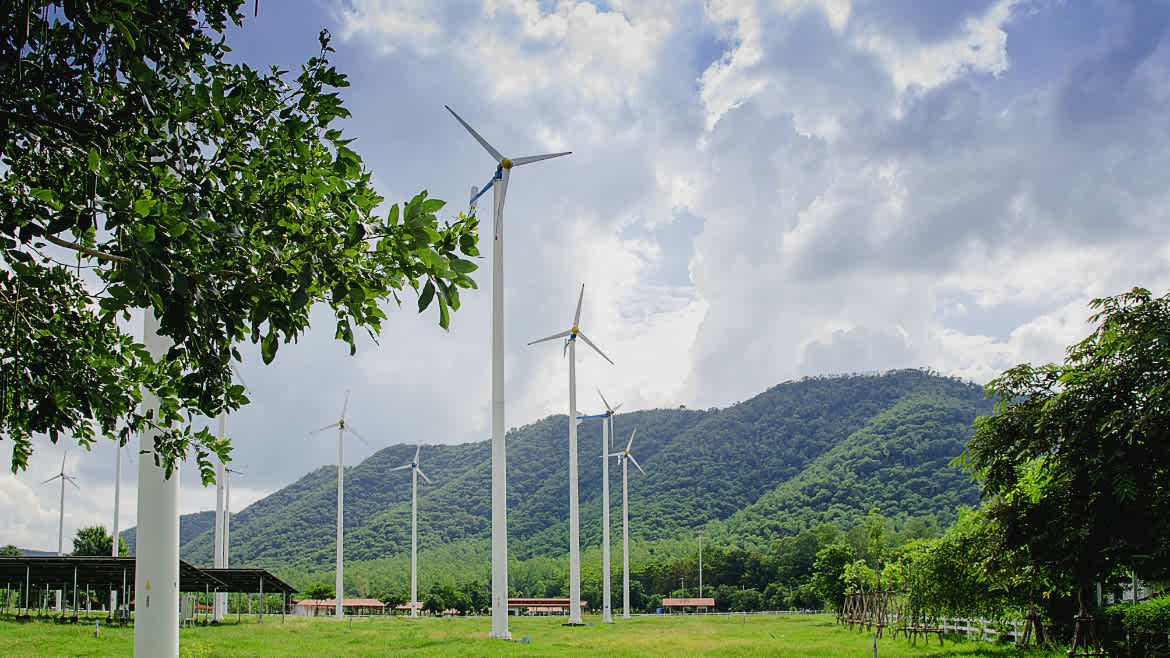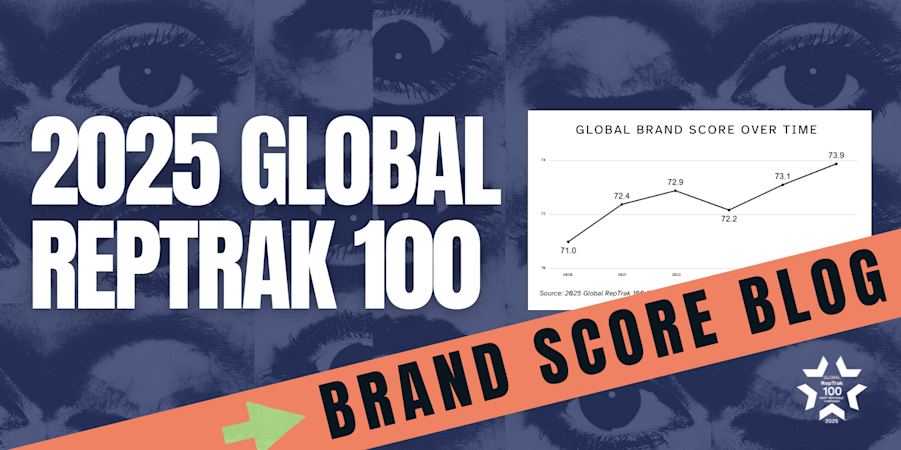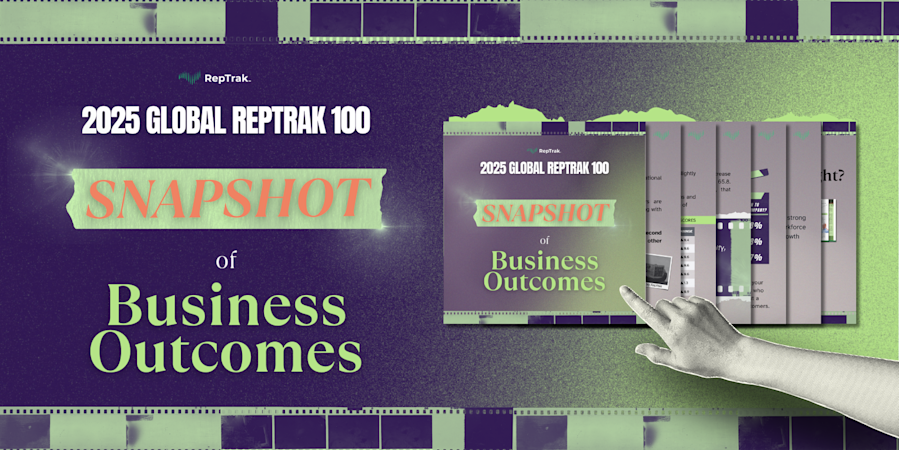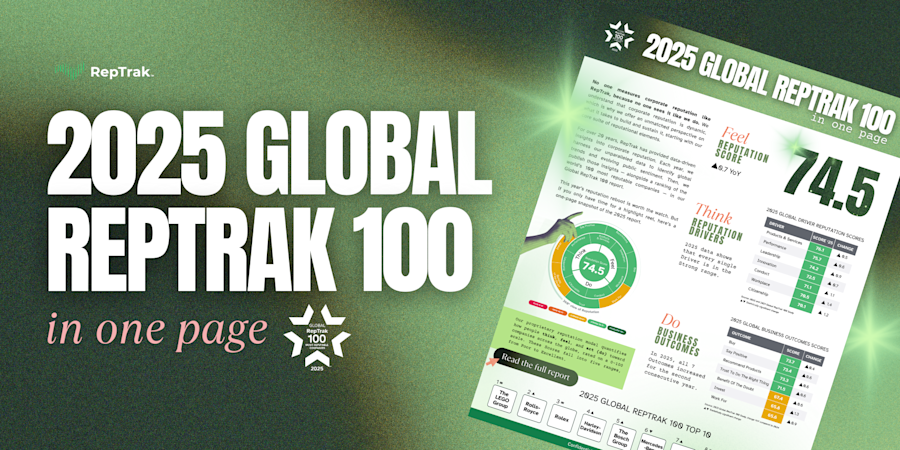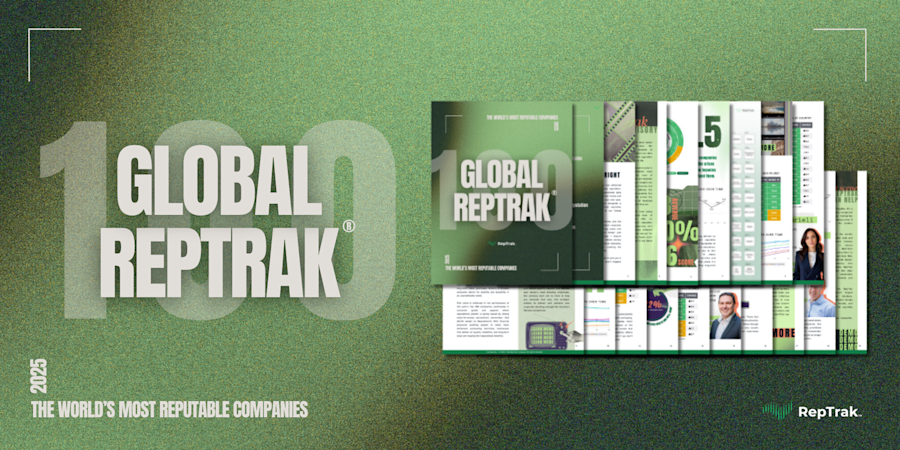Not Acting on Climate Change Can Be a Real Risk to Your Corporate Reputation in 2020
Blog Post02 Mar, 2020
You don’t have to know who Greta Thunberg is to know that over the last decade and a half, climate change has become a top concern for people around the world. Today, there is an expectation that countries and governments, and the businesses operating within them, will act in positive and effective ways to protect and manage environmental change. The effects of not doing so can be damaging—to the Earth, sure, but also to your corporate reputation.
That’s why climate change was identified by business leaders as a top-five priority in our report on the Global Trends affecting reputation in 2020.
Every year, the temperature of the planet seems to hit a new record high. And every year, hurricanes, wildfires, and other weather-related disasters threaten large swaths of the world’s population. With ice caps melting, and sea and ocean levels rising, the time to act is now. As United States Vice President Al Gore urged in the Oscar-winning 2006 documentary An Inconvenient Truth, we need to be preparing for other threats besides terrorism. “We have to act together to solve this global crisis,” he said. “Our ability to live is what is at stake.”
In that spirit, leaders around the world have started to act. The Paris Agreement, driven by the United Nations Framework Convention on Climate Change, has been in effect since 2016 and was signed by 195 signatories, with the purpose of managing the global average temperature increase.
The United Nations’ Sustainable Development Goals (SDGs) are 17 calls to action for countries to deliver on for prosperity, peace, and the future of the planet. Companies are also expected to implement the SDGs in how they run their businesses.
All of this was preamble to 2019, a year when climate change took center stage. In March, school children in 123 countries went on strike; Global Climate Strikes in September were attended by 6 million people globally; and in December, Thunberg, who made international headlines in September when she addressed the U.N., was declared Time magazine’s Person of the Year.
In the U.K., protests by environmentalists—both those staged by Extinction Rebellion (XR), which calls for faster, more urgent action on climate change and those conducted by school children—made up 45 percent of all reported protests in 2019, a huge increase over previous years.
Yes, young people have been leading the global debate on climate, and that’s reflected in the fact that 50 percent of those aged 18 to 24 who responded to a 2019 RepTrak study in the U.K. mentioned the environment as a priority for businesses. But it’s a mistake to think climate change is just a Gen Z issue. For all groups under the age of 65, action on climate is a top-two priority. Customers want to see action from every business.
It should not come as a surprise, then, that responding to climate change-driven policies, and acting responsibly to protect the environment, can have a significant impact on a company’s reputation. For example, according to the 2019 Global RepTrak study, acting to protect the environment is a key business driver when deciding whether to give a company the benefit of the doubt—a factor that’s especially important these days, when there is so much mistrust of companies.
In fact, according to the Global RepTrak study, acting in response to concerns about the environment can generate assurances and build reputation equity. Specifically, it can raise your reputation 18 points, which is enough to raise your overall rating from average to excellent, and to shift consumers from being fence-sitters to being promoters.
There are an increasing number of examples of companies that are taking action. One of them is Natura, which is the highest-rated company in our Global RepTrak study when it comes to acting responsibly to protect the environment. In fact, Natura is the only company to have a strong rating on the subject.
“More than a beautiful speech, sustainability is part of our day-to-day business decisions,” the company’s website reads. “At Natura, we measure all of our actions in terms of their impact on the planet. From our packaging to ingredient sourcing and operations, we strive to minimize impact on Planet Earth.... The three pillars that guide our business [are]: fair trade, conservation of Brazilian biodiversity and trusting relationship with the community.”
In January 2020, leaders from the worlds of business, politics, and journalism, along with a slew of activists and others, came together in Davos for the World Economic Forum’s Annual Meeting, which this year had the theme “Stakeholders for a Cohesive and Sustainable World.” The event took a number of steps to meet the ambitious goal of being among the most sustainable international summits ever held.
And in just the first two months of 2020, businesses including Microsoft, Starbucks, Nike, and BP made pledges to be more sustainable and environmentally friendly. Microsoft has already seen an increased amount of investment as one of the benefits of prioritizing climate and social concerns.
In addition, Amazon founder and CEO made his own $10 billion pledge in February to tackle climate change. “Climate change is the biggest threat to our planet,” Bezos wrote on his Instagram account. “I want to work alongside others both to amplify known ways and to explore new ways of fighting the devastating impact of climate change on this planet we all share."
With consumers increasingly looking to support businesses that are prioritizing climate change, your company can’t afford to ignore such concerns this year. Your reputation and bottom line—and the planet itself—will certainly benefit from taking such action.
DOWNLOAD THE FULL 2020 GLOBAL TRENDS REPORT.
Ana Angelovska Director, Strategic Initiatives The RepTrak Company [email protected]
